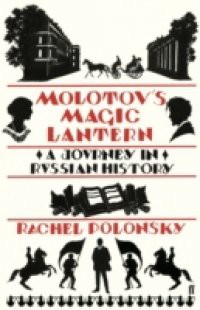When Rachel Polonsky went to live in Moscow, she found an apartment block in Romanov Street, once a residence of the Soviet elite. One of those ghostly neighbours was Stalin's henchman Vyacheslav Molotov.In Molotov's former apartment, Rachel Polonsky discovered his library and an old magic lantern. Molotov - ruthless apparatchik, participant in the collectivizations and the Great Purge - was also an ardent bibliophile.Molotov's library and his magic lantern became the prisms through which Rachel Polonsky renewed her vision of Russia. She visited cities and landscapes associated with the books in the library - Chekhov, Dostoevsky, Pushkin, Akhmatova and many less well-known figures. Some were sent to the Gulag by the man who collected their books.She writes exceptionally well about the longings and aspirations of Russian writers in the course of a journey that takes her to the Arctic and Siberia, the Crimean summer and Lake Baikal, from the forests around Moscow to the vast steppes. In each place she encountered the spirit of great artists and the terrible past of a country ravaged by war, famine, and totalitarianism.

